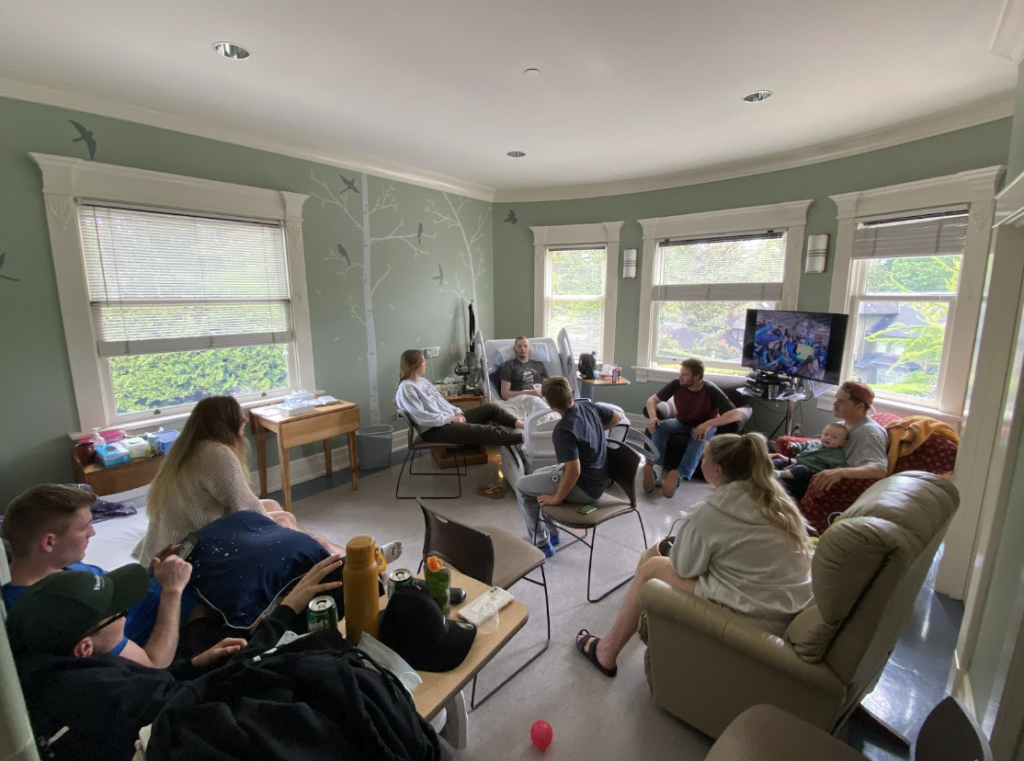If you told Mike Schouten assisted dying was an option for his son Markus, he would have been devastated.
“Our family would’ve heard: okay, you’re giving up on him now. You’re giving up.”
Mike’s son, Markus, was diagnosed with terminal bone cancer at age 18.
“Markus asked the doctor… ‘how much time do I have?’
“The doctor said, ‘we don’t know how much time you have, but all of our focus and attention is going to be ensuring that whatever time you do have is lived well.’”
Doctors recommended quality-of-life care, otherwise known as palliative treatment, and Markus switched over.
After a year trying to find a cure, the family began a new challenge – trying to find peace with the end, which was beyond their control.
At this stage, a single sentence could have toppled the family, Mike said to True North.
“If at any point during that treatment, the suggestion was made, or the option was there for medical assistance in dying, […] that would have been just devastating.”

Telling his story to Canada’s MAID committee
After Markus passed away, Mike appeared in front of Canada’s assisted dying committee.
The committee, The Special Joint Committee on Medical Assistance in Dying (AMAD), was deliberating about whether to include some children inside Canada’s euthanasia law.
The committee’s final report recommended some terminal children under the age of 18 should have access to self requested euthanasia – a decision Mike said is dangerous, and senseless.
“It just blows your mind how reckless this is,” he said. “Minors are not allowed to drive vehicles, they’re not allowed to drink alcohol. […] And now we have a government saying you can actually […] just end your life on your own, without your parents?”
This option would weigh heavily on families with terminal children, he said, and weaken an important facet of life: caring for our loved ones, seeing them to their end, and being seen to our end.

Many perspectives of dying
While Mike struggles to see how an assisted death option (MAID) would benefit families, some say the option can be important.
“I’ve also heard the other side of it,” said advocate James Cowan. “Another person has said ‘Look, I watched my son suffer. There was nothing we could do for him and I wish this alternative had been available.’”
In an interview with True North, Cowan – who is a board member at Dying with Dignity Canada – agreed with Mike: a MAID option would introduce an unimaginable decision for families to make during trying times. With that in mind, he said, applicable Canadians who decide it’s their best option should have the right.
While that’s an important right, he said, everybody should also have access to quality palliative care.
A suicidology expert says the same.
Dr. Brian Mishara, who founded the Canadian suicide and intervention centre “CRISE,” told True North many people may ignore MAID options if their family is provided with quality palliative care.
“Very often, we find one of the reasons given is to spare family members from going through anguish,” he said.
“In a good palliative care setting, the family will get support and the person who is terminally ill will get support… so that these sorts of thoughts and decisions will be made in a more realistic context.”
Even with end-of-life times being what they are, Mishara said, families often transcend the suffering.
“In many instances, this is a very meaningful and rich time in the person’s life,” he said. “Though the person who is dying may feel ‘oh, I’m a burden to them,’ that’s not necessarily how [families] feel.”
The Schouten family may be one example.

“As hard as it was for us to go through,” Mike said, “it was a beautiful experience.
“We experienced how we can, as human beings, care for each other in a way that even through suffering there is meaning, and every day can be a good day.
“Because as human beings we’re created to have compassion, and care, and walk alongside each other in suffering.”
Markus Schouten passed away on May 29, 2022, after living out a terminal diagnosis of metastasized Ewing sarcoma.





















